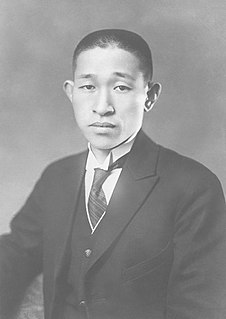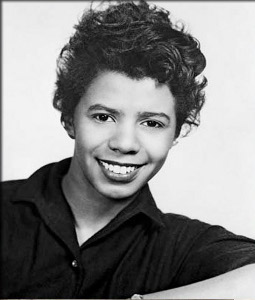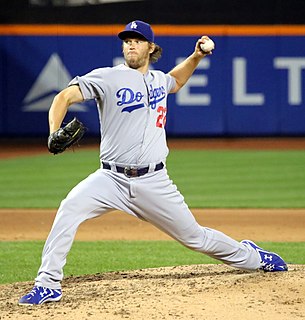Top 758 Passive Quotes & Sayings - Page 12
Explore popular Passive quotes.
Last updated on April 20, 2025.
I remember being disappointed when Papa had shown me Caravaggio's Judith. She was completely passive while she was sawing through a man's neck. Caravaggio gave all the feeling to the man. Apparently, he couldn't imagine a woman to have a single thought. I wanted to paint her thoughts, if such a thing were possible - determination and concentration and belief in the absolute necessity of the act. The fate of her people resting on her shoulders.
How do we take our anger and transform it into sacred rage? How do we create a language that opens the heart instead of closing it? To bear witness is not a passive act. It's an act of consequence that leads to consciousness. It matters. I am curious. I want to know why. I was raised with a scripture that says, "The glory of God is intelligence." And to me our greatest intelligence is following our instincts, trusting our intuition.
The thing about drugs is that it [dealing] gives people an income to deal with, and it also gives people a compelling drama in their lives that they used to get from the office and the factory, and they're no longer there. What happens if you have everything in the hands of the state, particularly in the line of an authoritarian state, they just give people drugs to keep them doped up, to keep them passive.
I believe we are a species with amnesia, I think we have forgotten our roots and our origins. I think we are quite lost in many ways. And we live in a society that invests huge amounts of money and vast quantities of energy in ensuring that we all stay lost. A society that invests in creating unconsciousness, which invests in keeping people asleep so that we are just passive consumers or products and not really asking any of the questions.
So shall we come to look at the world with new eyes. It shall answer the endless inquiry of the intellect, — What is truth? and of the affections, — What is good? by yielding itself passive to the educated Will. ... Build, therefore, your own world. As fast as you conform your life to the pure idea in your mind, that will unfold its great proportions. A correspondent revolution in things will attend the influx of the spirit.
All philosophers make the common mistake of taking contemporary man as their starting point and of trying, through an analysis of him, to[21] reach a conclusion. "Man" involuntarily presents himself to them as an aeterna veritas as a passive element in every hurly-burly, as a fixed standard of things. Yet everything uttered by the philosopher on the subject of man is, in the last resort, nothing more than a piece of testimony concerning man during a very limited period of time.
In fact, entertainment has taken the place of celebration in the present world. But entertainment is quite different from celebration; entertainment and celebration are never the same. In celebration you are a participant; in entertainment you are only a spectator. In entertainment you watch others playing for you. So while celebration is active, entertainment is passive. In celebration you dance, while in entertainment you watch someone dancing, for which you pay him.
It is Deism which depicts God as the passive onlooker rather than the active governor of His world, and which assures us that the guarantee of human freedom lies in the fact that men's actions are not under God's control. But the Bible teaches rather that the freedom of God, who works in and through His creatures, leading them to act according to their nature, is itself the foundation and guarantee of the freedom of their action.
It is a sobering fact that the prominence of central banks in this century has coincided with a general tendency towards more inflation, not less. [I]f the overriding objective is price stability, we did better with the nineteenth-century gold standard and passive central banks, with currency boards, or even with 'free banking.' The truly unique power of a central bank, after all, is the power to create money, and ultimately the power to create is the power to destroy.
We have opted for petty determinisms - childhood trauma, genetic inheritance, social conditioning, etc. - that have made us comparatively passive. We seem to prefer to find excuses - which are really nothing more than the embrace of determinism, a sort of Stockholm syndrome relative to whatever we can claim as limitation. I am fascinated by the more enabling self-understanding. It has helped me to find my way out of the cloying comforts that are offered by prevalent psychological models.
Christian morality (so called) has all the characters of a reaction; it is, in great part, a protest against Paganism. Its ideal is negative rather than positive; passive rather than action; innocence rather than Nobleness; Abstinence from Evil, rather than energetic Pursuit of Good: in its precepts (as has been well said) "thou shalt not" predominates unduly over "thou shalt.
Words are alive--when I've found a story that I love, I read it again and again, like playing a favorite song over and over. Reading isn't passive--I enter the story with the characters, breathe their air, feel their frustrations, scream at them to stop when they're about to do something stupid, cry with them, laugh with them. Reading for me, is spending time with a friend. A book is a friend. You can never have too many.
Desire is the putting of my will into God’s concern. It’s not a passive, sitting back in your easy chair, folding your arms sort of thing, which says, 'Well, I’m willing, if God would only give me a good swift kick and send me.' That’s willingness all right. But God doesn’t want willingness, He wants will! He wants your will put behind those desires.
As you know, shibumi has to do with great refinement underlying commonplace appearances. It is a statement so correct that it does not have to be bold, so poignant it does not have to be pretty, so true it does not have to be real. Shibumi is understanding, rather than knowledge. Eloquent silence. In demeanor, it is modesty without pudency. In art, where the spirit of shibumi takes the form of sabi, it is elegant simplicity, articulate brevity. In philosophy, where shibumi emerges as wabi, it is spiritual tranquility that is not passive; it is being without the angst of becoming.
Our age has become so mechanical that this has also affected our recreation. People have gotten used to sitting down and watching a movie, a ball game, a television set. It may be good once in a while, but it certainly is not good all the time. Our own faculties, our imagination, our memory, the ability to do things with our mind and our hands-they need to be exercised. If we become too passive, we get dissatisfied.
Trench says a wild man is a willed man. Well, then, a man of will who does what he wills or wishes, a man of hope and of the future tense, for not only the obstinate is willed, but far more the constant and persevering. The obstinate man, properly speaking, is one who will not. The perseverance of the saints is positive willedness, not a mere passive willingness. The fates are wild, for they will; and the Almighty is wild above all, as fate is.
In order to do a good job a person must like what he or she is doing....'Love thy work', and you will be successful..... If you do things just because you have to, then you will never enjoy work. Nor will you do a good job if you do it simply out of a sense of duty. stress is often a by-product of such passive or negative attitudes toward work. Paradoxically as it may sound, love of work can be the best medicine for workaholism.
The American system demands success, and in order to succeed we must first believe that we can. Yet our society, with its intolerance of failure and poverty, traps millions of people in positions where any kind of success seems impossible to contemplate, and in which failure itself is a kind of passive rebellion against their own misery and the social system which created it in the first place. To succeed it is necessary to accept the world as it is and rise above it.
Do you see the consequences of the way we have chosen to think about success? Because we so profoundly personalize success, we miss opportunities to lift others onto the top rung...We are too much in awe of those who succeed and far too dismissive of those who fail. And most of all, we become much too passive. We overlook just how large a role we all play—and by “we” I mean society—in determining who makes it and who doesn’t.
The technological landscape of the present day has enfranchised its own electorates - the inhabitants of the marketing zones in the consumer society, television audiences and news magazine readerships, who vote with money at the cash counter rather than with ballot paper at the polling boot. These huge and passive electorates are wide open to any opportunist using the psychological weaponry of fear and anxiety, elements that are carefully blanched out of the world of domestic products and consumer software.
But to demand that a work be “relatable” expresses a different expectation: that the work itself be somehow accommodating to, or reflective of, the experience of the reader or viewer. The reader or viewer remains passive in the face of the book or movie or play: she expects the work to be done for her. If the concept of identification suggested that an individual experiences a work as a mirror in which he might recognize himself, the notion of relatability implies that the work in question serves like a selfie: a flattering confirmation of an individual's solipsism.
The majority of American writers today have chosen passive non-resistance to things as they are, producing sloughs of poetry about their personal angst and anomie, cascades of short stories and rivers of novels obsessed with the nuances of domestic relationships - suburban hanky-panky - chic boutique shopping mall literary soap opera. When they do speak out on matters of controversy they attack not the evils of our time but fellow writers who may insist on complaining.
And I’ve said this all across the country when I talk to parents about education, government has to fulfill its obligations to fund education, but parents have to do their job too. We’ve got to turn off the TV set, we’ve got to put away the video game, and we have to tell our children that education is not a passive activity, you have to be actively engaged in it. If we encourage that attitude and our community is enforcing it, I have no doubt we can compete with anybody in the world.
You don't fully understand the meaning of a work until the audience responds to it. Because the audience completes the circle, and adds a whole other shade of meaning. Whenever you view something, and this is why great works of art survive decades and centuries, is because there's a door within the work that allows the audience to walk through and complete the meaning of the work. An audience isn't passive, nor are they unintelligent.
A part of a healthy conscience is being able to confront consciencelessness. When you teach your daughter, explicitly or by passive rejection, that she must ignore her outrage, that she must be kind and accepting to the point of not defending herself or other people, that she must not rock the boat for any reason, you are NOT strengthening her posocial sense, you are damaging it-and the first person she will stop protecting is herself.
I don't understand why black people have been so quiescent, so passive over the hundreds of years of American history. Why hasn't there been more violence, more armed struggle? I know answers to some of that, but it seems to me it's an issue of faith, an abiding faith in some sort of great beyond, or great spirit, or even in the American dream.
Passive commerce . . . should thus . . . [compel us] to content ourselves with the first price of our commodities, and to see the profits of our trade snatched from us, to enrich our enemies and persecutors. That unequalled spirit of enterprise . . . an inexhaustible mine of national wealth, would be stifled and lost; and poverty and disgrace would overspread a country, which, with wisdom, might make herself the admiration and envy of the world.
You know, you have to start with hope...you don't get anywhere in this country without hope. So it's a necessity. What Barack says is that people have to understand hope isn't just blind optimism. It isn't passive. It isn't just sitting there waiting for things to get better. Hope is the vision that you have to have. It's the inspiration that moves people into action...There are more people engaged in this political process in this year than we've seen in my lifetime. And it is all because of hope because people believe in the possibility of something unseen.
1) Différance is the systematic play of differences, of the traces of differences, of the spacing by means of which elements are related to each other. This spacing is the simultaneously active and passive (the a of différance indicates this indecision as concerns activity and passivity, that which cannot be governed by or distributed between the terms of this opposition) production of the intervals without which the "full" terms would not signify, would not function.
I think, for the good of the country and the fact that you don't want a question coming up every time there's a decision made, [Donald Trump] should basically take himself out of it and just be a passive participant in the sense that he has no decision-making, no involvement and no decisions get made separate from him. Which is the way the way it's done for more Cabinet offices. Or I think all Cabinet offices.
We still (sometimes) remember that we cannot be free if our minds and voices are controlled by someone else. But we have neglected to understand that we cannot be free if our food and its sources are controlled by someone else. The condition of the passive consumer of food is not a democratic condition. One reason to eat responsibly is to live free. (pg. 323, The Pleasures of Eating)
There are a few societies that show signs of having been very rational about the physics of construction and the physics of real life. Some of the old middle-Eastern societies had downdraft systems over whole cities, and passive, rapid-evaporation ice-making systems. They were rational people using good physical principles to make themselves comfortable without additional sources of energy.
After meditating for some years, I began to see the patterns of my own behavior. As you quiet your mind, you begin to see the nature of your own resistance more clearly, struggles, inner dialogues, the way in which you procrastinate and develop passive resistance against life. As you cultivate the witness, things change. You don't have to change them. Things just change.
There's no passive success on radio. Well, in radio, one of the ways in which you engage people and make them active listeners and have them glued so that they don't want to do anything else, you have to find ways to incorporate this mystery called the theater of the mind. And it's the one ingredient that radio has that television does not that if used properly, if perfected and learned and executed properly, it can have a much greater impact than TV because it can create a much more intimate, direct connection with the audience.
Christian morality (so called) has all the characters of a reaction.... In its horror of sensuality, it made an idol of asceticism, which has been gradually compromised away into one of legality. It holds out the hope of heaven and the threat of hell, as the appointed and appropriate motives to a virtuous life - in this falling far below the best of the ancients, and doing what lies in it to give to human morality an essentially selfish character.... It is essentially a doctrine of passive obedience; it inculcates submission to all authorities found established.
Where utopianism is advanced through gradualism rather than revolution, albeit steady and persistent as in democratic societies, it can deceive and disarm an unsuspecting population, which is largely content and passive. It is sold as reforming and improving the existing society's imperfections and weaknesses without imperiling its basic nature. Under these conditions, it is mostly ignored, dismissed, or tolerated by much of the citizenry and celebrated by some. Transformation is deemed innocuous, well-intentioned, and perhaps constructive but not a dangerous trespass on fundamental liberties.
The object of defense is preservation; and since it is easier to hold ground than to take it, defense is easier than attack. But defense has a passive purpose: preservation; and attack a positive one: conquest.... If defense is the stronger form of war, yet has a negative object, it follows that it should be used only so long as weakness compels, and be abandoned as soon as we are strong enough to pursue a positive object.
The passive American consumer, sitting down to a meal of pre-prepared food, confronts inert, anonymous substances that have been processed, dyed, breaded, sauced, gravied, ground, pulped, strained, blended, prettified, and sanitized beyond resemblance to any part of any creature that ever lived. The products of nature and agriculture have been made, to all appearances, the products of industry. Both eater and eaten are thus in exile from biological reality.
Perhaps the history of the errors of mankind, all things considered, is more valuable and interesting than that of their discoveries. Truth is uniform and narrow; it constantly exists, and does not seem to require so much an active energy, as a passive aptitude of the soul in order to encounter it. But error is endlessly diversified; it has no reality, but is the pure and simple creation of the mind that invents it. In this field the soul has room enough to expand herself, to display all her boundless faculties, and all her beautiful and interesting extravagancies and absurdities.
Despite popular opinion, there are no important parallels between Madonna and Monroe, who was a virtuoso comedienne but who was in secure, depressive, passive-aggressive, and infuriatingly obstructionist in her career habits. Madonna is manic, perfectionist, workaholic. Monroe abused alcohol and drugs, while Madonna shuns them. Monroe had a tentative, melting, dreamy solipsism; Madonna has Judy Holliday's wisecracking smart mouth and Joan Crawford's steel will and bossy, circus master managerial competence.
The day becomes more solemn and serene When noon is past; there is a harmony In autumn, and a lustre in its sky, Which through the summer is not heard or seen, As if it could not be, as if it had not been! Thus let thy power, which like the truth Of nature on my passive youth Descended, to my onward life supply Its calm, to one who worships thee, And every form containing thee, Whom, SPIRIT fair, thy spells did bind To fear himself, and love all human kind.
...Negroes must concern themselves with every single means of struggle: legal, illegal, passive, active, violent and non- violent.... They must harass, debate, petition, boycott, sing hymns, pray on steps--and shoot from their windows when the racists come cruising through their communities.... The acceptance of our condition is the only form of extremism which discredits us before our children [ellipses in source].
When I consider the narrow limits within which our active and inquiring faculties are confined; when I see how all our energies are wasted in providing for mere necessities, which again have no further end than to prolong a wretched existence; and then that all our satisfaction concerning certain subjects of investigation ends in nothing better than a passive resignation... when I consider all this... I am silent.
Many people think there's nothing they can do to change their karma - it's preordained so why bother trying to change their situation? This is what scares people. These folks think that to accept the reality of karma one must be passive. It simply isn't true. Karma is active. We can - in the blink of an eye - make decisions that will shape our futures and transform the parts of our lives that are causing us unhappiness.
You can't be what you can't see, so it's harder for women to say, "I'm going to be a [presidential] candidate," so we need to go to women who would be good candidates and say, "You would be a good candidate and I'll help you." It's not a passive question, it's not when will it happen, but an active question, when will we make it happen?
Theres another reason for working inside the system. Dostoevsky said that taking a new step is what people fear most. Any revolutionary change must be preceded by a passive, affirmative, non-challenging attitude toward change among the mass of our people. They must feel so frustrated, so defeated, so lost, so futureless in the prevailing system that they are willing to let go of the past and change the future. This acceptance is the reformation essential to any revolution.
I'm against suppression of pornography. If you suppress guns - yes; if you want to suppress poverty - yes. These are the obscenities, the real brutalization of people. I am almost more outraged by ads for blue jeans or cars that sort of blatantly depict women not only as sex objects, but women that look younger than the age of consent, looking like they've just been raped or asking to be raped-utterly passive sex objects.
I'm not going to look back. 'Don't look back, something might be gaining on you.' I don't have anything specific in mind. I want to do what comes my way. No plans, no idea, I believe in things happening organically. Right now the plan is to wrap things up - we've got one more Abbie Hoffman Fest to put together - whatever happens after that is unknown. I'm not going to push anything beyond passive behavior.
There is a certain kind of peace that is not merely the absence of war. It is larger than that. The peace I am thinking of is not at the mercy of history's rule, nor is it a passive surrender to the status quo. The peace I am thinking of is the dance of an open mind when it engages another equally open one -- an activity that occurs most naturally, most often in the reading/writing world we live in. Accessible as it is, this particular kind of peace warrants vigilance.
Mother is in herself a concrete denial of the idea of sexual pleasure since her sexuality has been placed at the service of reproductive function alone. She is the perpetually violated passive principle; her autonomy has been sufficiently eroded by the presence within her of the embryo she brought to term. Her unthinking ability to reproduce, which is her pride, is, since it is beyond choice, not a specific virtue of her own.
I'm often wary of using the word 'inspiration' to introduce my work -- it sounds too much like a sun shower from the heavens, absorbed by a passive individual enjoying an especially receptive moment. While that may be the case on rare occasions, the reality is usually far more prosaic. Staring at a blank piece of paper, I can't think of anything original. I feel utterly uninspired and unreceptive. It's the familiar malaise of 'artist's block' and in such circumstances there is only one thing to do: just start drawing.
I fought violently for the autonomy of architecture. It's a very passive, weak profession where people deliver a service. You want a blue door, you get a blue door. You want it to look neo-Spanish, you get neo-Spanish. Architecture with any authenticity represents resistance. Resistance is a good thing.
I don't write about love because it makes for easy, passive heroes. I write about how love makes my characters more autonomous, more self-possessed, more opinionated and powerful. I write about characters who pursue relationships that make them the people they want to become. I write about love as a superpower.
The soul seeks God by faith, not by the reasonings of the mind and labored efforts, but by the drawings of love; to which inclinations God responds, and instructs the soul, which co-operates actively. God then puts the soul in a passive state where He accomplishes all, causing great progress, first by way of enjoyment, then by privation, and finally by pure love.
If, on the other hand, we wish to describe a particular phenomenon without repressing our direct experience, then we cannot avoid speaking of the phenomenon as an active, animate entity with which we find ourselves engaged. To the sensing body, no thing presents itself as utterly passive or inert. Only by affirming the animateness of perceived things do we allow our words to emerge directly from the depths of our ongoing reciprocity with the world.
You never want to be in a defensive mode or have a defensive mindset. You always want to know that you're in control as the pitcher, you make him get hits, you're never passive, always aggressive. If I get beat, I want it to be because I got rocked, got hit hard, never because I walked a couple of guys and before you know it.
Nothing enrages me more than when people criticize my criticism of school by telling me that schools are not just places to learn maths and spelling, they are places where children learn a vaguely defined thing called socialization...I think schools generally do an effective and terribly damaging job of teaching children to be infantile, dependent, intellectually dishonest, passive and disrespectful to their own developmental capacities.
Child psychologists have demonstrated that our minds are actually constructed by these thousands of tiny interactions during the first few years of life. We aren't just what we're taught. It's what we experience during those early years - a smile here, a jarring sound there - that creates the pathways and connections of the brain. We put our kids to fifteen years of quick-cut advertising, passive television watching, and sadistic video games, and we expect to see emerge a new generation of calm, compassionate, and engaged human beings?

























































